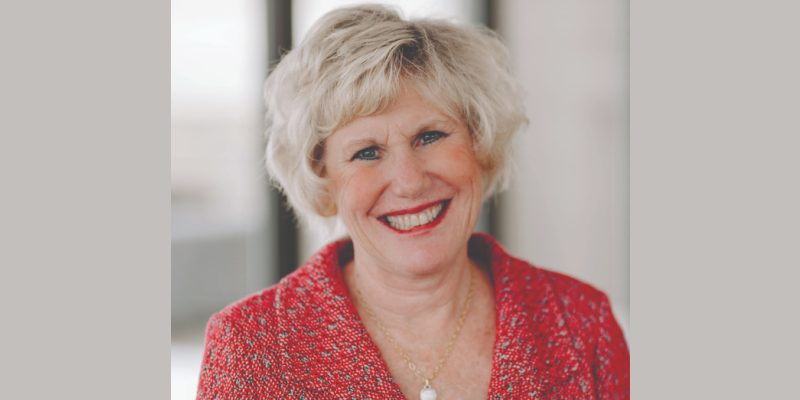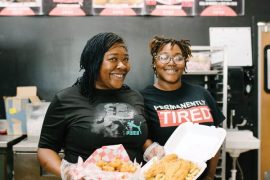By Shayna Mace | Photo courtesy Londa Dewey
Londa Dewey, CEO of The QTI Group
Londa Dewey has been at the helm of QTI, a 63-year-old business founded in Madison, for 13 years. During this utterly unprecedented time she knew QTI, which “helps businesses reach their full potential through people,” had to act quickly because of the clients they serve. Their work encompasses four areas: temporary administrative and industrial staffing; executive, professional and technical recruiting; human resources consulting; and PEO, which includes HR, payroll and benefits for small to mid-sized businesses.
“I’m so proud of our team because they worked quickly together … to enable our employees to work remotely right away [during the pandemic]. We didn’t miss a beat, and we’ve been open this entire time. We are considered an essential business, and we serve essential businesses. The primary reason for that is we have applicants that still need to come in because we provide pre-employment screenings,” explains Dewey.
Dewey says that temporary staffing follows the trajectory of the economy. When the economy declines, temporary employee needs go down because of economic uncertainty. As a result, QTI, which works with companies to fill temporary and temp-to-hire positions, had to temporarily furlough their own staff because of the slowdown. Luckily, they were able to bring staff back quickly because of their PPP loan.
When things slowed down, the company strategized about how they could help their clients. They drafted up white papers and hosted webinars to keep clients informed on the latest happenings around COVID-19 and employment trends. “We don’t know the answers, but we can certainly do the research and provide what we know and some insights. It’s about being adaptable and prepared for the next ‘normal,’ and how do we reimagine our future so that we’re connected to what businesses need in the future — which might be different than today,” says Dewey.
She says the pandemic has revealed that businesses are thinking more strategically about the future. “We do succession planning because there needs to be a transition. We’re finding [now] that … businesses are being super strategic about talent and are saying, ‘This is the time for us to get the talent we need [rather than waiting].’”
And during this Zoom-heavy period, Dewey doubles down on her appreciation for her own company’s talent.
“While we’ve been apart, I feel very close to our employees at this point in time, and I really appreciate them,” she says, simply. “[They’ve all had] different challenges in this environment, and their hard work and commitment [has showed].”
See more stories from The Ongoing Challenge of COVID-19 here.




